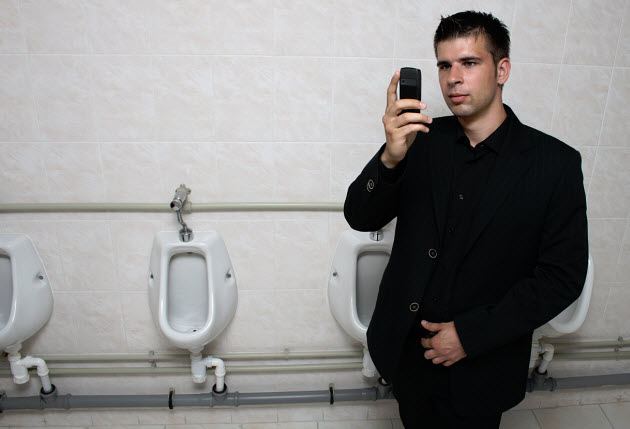Cleaning a smartphone or tablet isn’t a regular, common practice, but these gadgets are constantly touched.
Aside from the occasional wipe down with a tissue or with a shirt sleeve to take the spots and dust off the screen the majority of people don’t really think twice about giving a mobile device a good cleaning. Mobile Commerce Press recently conducted a study on this weird news, revealing that smartphones are the surface that are considered to have the largest amount of bacteria.
However, new cleaners are making their way to the market and are pointing out that our smartphones aren’t clean.
Will the marketing from these products start a new trend toward cleaning various types of mobile device such as smartphones, tablets, MP3 players, wearable technology, and others? After all, these gadgets are used by touching them with our fingers, holding them in our hands, and pressing them to our ears and faces. These are the same devices that are dropped on the ground, left on restaurant tables, and set down just about anywhere else that they will fit.
While some people believe that there isn’t all that much of a risk presented by using a smartphone in the same way that we always have, without doing all that much to ensure that it has been cleaned and sterilized, others worry that people could be making themselves sick.
That said, is a quick wipe enough to keep a mobile device clean, or are specialty products really necessary?
Within the Mobile Commerce Press study, 70 percent of survey respondents said that a mobile phone has the most bacteria on it among all of the available options. Ten percent thought that the bathtub had the most bacteria, while 10 percent said that it was the toilet handle. Five percent though the fridge handle was the dirtiest, while 2.5 percent pointed to the bathroom door handle.
According to the marketing for a product called PhoneSoap, our cell phones and other gadgets are a lot dirtier than we think they are. In fact, they say that “1 in 6 cell phones have fecal matter on them!”, which is a thought that is more than a little bit upsetting. In fact, they quote a Fox News source, saying that the average cell phone has 18 times more bacteria on it than the typical public bathroom.
Mobile devices accumulate bacteria in many different ways, from hands and faces, to all the surfaces with which they come in contact. Moreover, according to PhoneSoap, they provide a bacteria breeding ground, implying that this could make users sick, promote acne on faces, and cause other potential issues.
However, as much as it is true that cleanliness is important, some people and groups also feel that requiring a UV emitting gadget to sterilize smartphones is not a necessity and that it is merely feeding a growing fear of bacteria that is becoming commonplace. In a society where antibacterial products such as hand sanitizers and antibacterial soaps are already being overused to the point that they are making bacteria resistant to antibiotic drugs, people are always looking for new ways to feel sure that there aren’t any microbes lurking on anything that they touch. This is leading to a rise in mysophobia, that is, an excessive fear of germs and contamination.

 When looking at the figures presented by the company, it is not difficult to understand why it is crediting users of smartphones and
When looking at the figures presented by the company, it is not difficult to understand why it is crediting users of smartphones and 